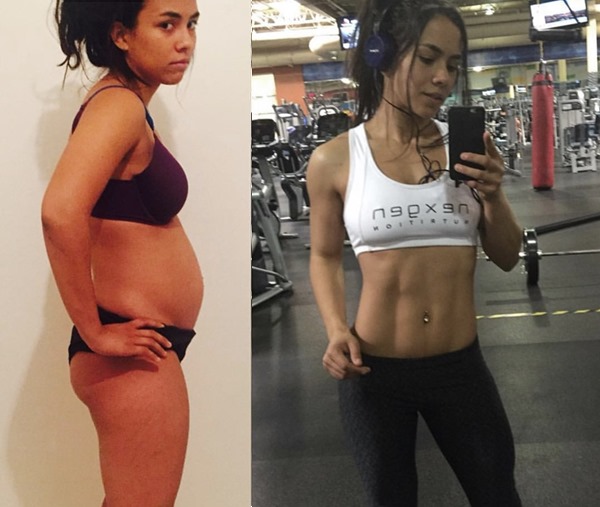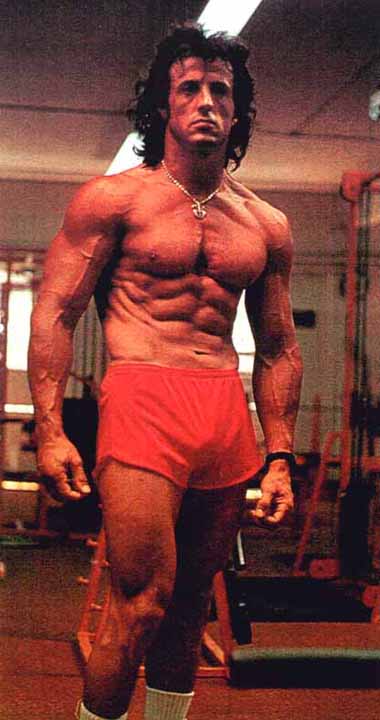
Some people will tell you bodybuilding is 75% nutrition. Other will say 80%. A few might pinpoint it at 90%. It’s a rote old phrase, and although most of us in the bodybuilding trenches aren’t math majors we know that whatever the figure, the point is this nutrition matters a whole hell of a lot.
Yet, why do so many bodybuilders drop the ball on this front? They’ll put all they have into every single workout, then miss a meal, eat like crap, or make some other rookie mistake that jeopardizes all the potential results from their hard training. If you fall into that pattern, here’s your chance to finally nail down your diet. We’ve put together five different daily bodybuilding scenarios, from breakfast to bedtime and pre-to postworkout.
For each scenario, we tell you not only what you should eat, but when you should eat it (with serving sizes suitable for a 180- to 220-pound bodybuilder). Easy. Simple, And, best of all, no advanced math degree required.
Scenario 1 – The Mass Gainer
Ah, the ever-popular mass-building phase. To make sure your muscles are ready and repaired after each iron onslaught, you’ll need to replenish fully after each workout–not just once, but twice. Here’ how.
Critical Period: Postworkout
Immediately after training
Eat This: 40 grams of a whey protein shake (or a combination of 20 g whey and 20 g casein protein), with a large plain bagel and two tablespoons of jelly
Why
As soon as you complete your final rep, it’s time to provide your body with a fast source of protein and carbs to prevent muscle breakdown and open up growth pathways. Whey provides a good source of leucine, and carbs boost insulin levels, both of which stimulate protein synthesis. Insulin pushes the glucose from the bagel and jelly into your muscles to replenish the glycogen you burned during your workout. Insulin also helps drive amino acids into the muscle, where they’ll be used as building blocks to synthesize (make) muscle protein (i.e., build muscle).
One hour after your postworkout meal
Eat This: 8 ounces tilapia fish, 2 sweet potatoes
Why
An hour after you’ve fueled up with whey and fast carbs, you need a fairly fast-burning whole-food protein, such as low-fat fish, to keep protein synthesis and muscle growth humming along. You also need a slower-digesting carb such as sweet potatoes, which will continue the process of replenishing muscle glycogen without spiking insulin when it’s no longer needed, as a spike could lead to fat gain.
Scenario 2 – The Heavy Lifter
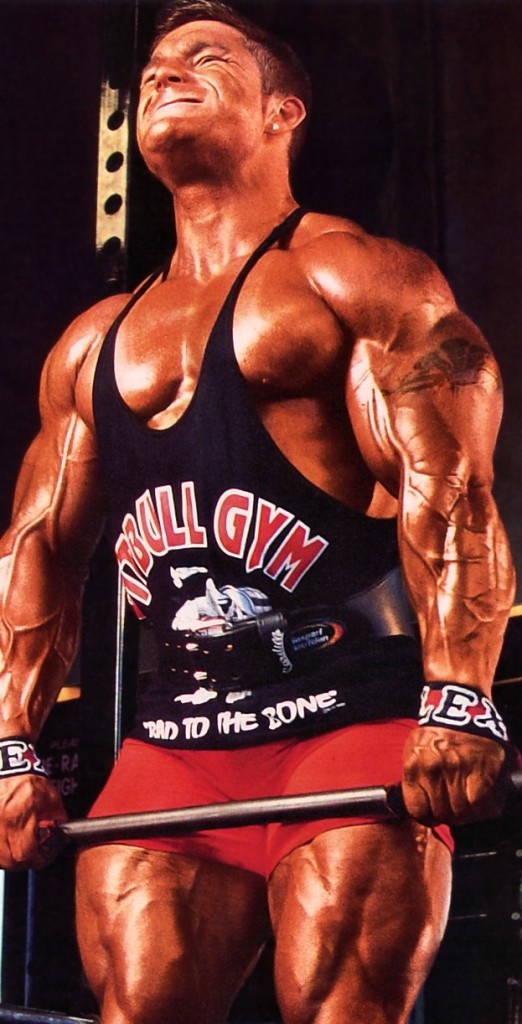 If you want to get big, you gotta lift heavy. To make sure you’re feeling strong enough to put up some serious poundage, you’ll need to start the day off the right way at the breakfast table.
If you want to get big, you gotta lift heavy. To make sure you’re feeling strong enough to put up some serious poundage, you’ll need to start the day off the right way at the breakfast table.
Critical Period: Breakfast
Immediately upon waking
Eat This: 20 g whey protein and a banana
Why
When you wake from your seven-plus hour slumber, you are catabolic–meaning your body is literally eating your muscles for fuel. Since muscle mass is what gives you strength, you can’t sacrifice any of it. Ingesting a fast-digesting protein, such as whey, gives your body an alternative source of aminos for fuel, which will stop the attack on your muscles. Whey aminos that are not used as fuel can rebuild the muscle protein that was broken down at night and help spur growth. The fructose in the banana will quickly restock the liver with carbs (glycogen), which signals the body to stop using aminos for fuel and use glucose from the liver instead.
30-60 minutes after eating the whey and banana
Eat This: 4 eggs whites, 3 whole eggs, 1 cup (precooked measure) oatmeal (prepare oatmeal following label instructions)
Why
After your morning whey and banana, you need a slower-digesting protein to maintain an anabolic, or muscle-building, state. You also need healthy fats, such as those found in egg yolks, to protect your joints. The saturated fats and even the cholesterol in yolks are also important for maintaining testosterone levels and enhancing strength. In fact, a recent study found that subjects who ate three whole eggs each day while following a 12-week strength training program gained more than twice as much strength as those who ate no eggs or just one whole egg per day. Oatmeal provides a low-glycemic source of carbs, which gives you long-lasting energy throughout the day and ensures you’ll have enough power in the gym.
Scenario 3 – The Lean Out
Time to melt away excess bodyfat. Of course, you don’t want to lose any muscle along the way, so you’ll need to keep eating every two to three hours–even between dinner and bedtime. Going all night without eating isn’t the way to get lean. Why? When you sleep, you essentially fast for seven to nine hours. When you go that long without protein, your body breaks down muscle for fuel.
Critical Period: Before bed
2 hours before going to sleep
Eat This: 4-6 oz salmon, 1/2 cup chopped broccoli
Why
To keep burning fat and adding muscle, you need to eat protein at night. Salmon provides protein and essential fats, keeping your metabolism at high speed and your muscle growth in overdrive. Carbs are a bad idea at night when you’re in fat-burning mode, so stick with a high fiber, low-carb veggie like broccoli, which will help you feel full and keep your nighttime cravings in check.
Immediately before sleep
Eat This: 1 cup low-fat cottage cheese
Why
Cottage cheese is a slow-digesting protein that steadily releases its amino acids into your bloodstream throughout the night. That spares your muscle protein, so you maintain–and even build more–muscle mass while dieting.
Scenario 4 – The Marathon Workout
 You’re a high-volume, high-intensity type of guy, which means you’ll be in the gym for a while. You don’t want to be too full, but you do want to make it through the workout without hunger pains draining your strength and energy.
You’re a high-volume, high-intensity type of guy, which means you’ll be in the gym for a while. You don’t want to be too full, but you do want to make it through the workout without hunger pains draining your strength and energy.
Critical Period: Preworkout
2 hours before workouts
Eat This: Lean burger (6-8 oz) on whole-wheat bun, one small sweet potato, mixed green salad with low-fat dressing
Why
Fueling up for a grueling workout needs to take place hours beforehand. You need a quality protein source. Lean beef has some saturated fat in it, which is critical for testosterone production. Keeping testosterone levels maxed before a big workout can increase strength and aggression–both helpful for balls-to-the-wall training. The whole-wheat bun and sweet potato are slow-digesting carbs that provide long-lasting energy without inhibiting fat burning. The salad will boost nitric oxide levels, increasing blood flow to muscles and the delivery of critical nutrients and oxygen, and boosting energy levels.
Immediately before workouts
Eat This: 20 g whey, 2 large oranges
Why
Eating fast-digesting protein before your workout is critical: the amino acids provide a source of energy, decrease muscle breakdown and enhance postworkout recovery and growth. Oranges provide some immediate fuel for your muscles, and some longer-lasting fuel to keep you going until the final rep. They also contain vitamin C, which boosts NO levels.
Scenario 5 – Nutrition on the Go
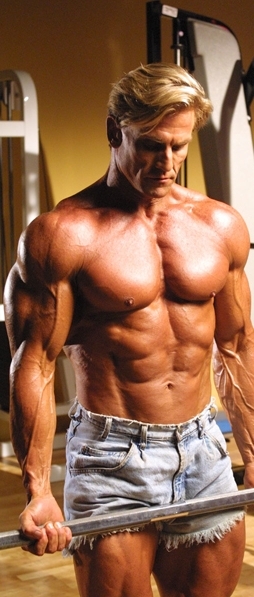 You’re not going to miss a workout, so a packed schedule means you had to hit the gym on your lunch break. The line for the drive-through near the office is too long, and you don’t have time to wait. Looks like you’ll need to stop at a nearby convenience store for sustenance to get you through the next few hours.
You’re not going to miss a workout, so a packed schedule means you had to hit the gym on your lunch break. The line for the drive-through near the office is too long, and you don’t have time to wait. Looks like you’ll need to stop at a nearby convenience store for sustenance to get you through the next few hours.
Critical Period: Postworkout
Immediately after training
Eat This: 16 oz fat-free or low-fat chocolate milk
Why
You won’t find a ready-to-drink shake at many convenience stores, but you will find quality protein and fast carbs in the form of chocolate milk. After all, that’s where both whey and casein come from. Fast carbs from the sugar in the chocolate milk will boost insulin levels and drive muscle growth.
1 hr after the postworkout meal
Eat This: 4 oz beef jerky, 1 bag low-fat popcorn, unsweetened iced tea
Why
An hour after your postworkout snack, you need to refuel with some quality whole-food protein and carbs. Beef jerky is an easy and convenient option that offers low-fat, high-grade protein. You’ll also need a slower-digesting carb to restock muscle glycogen levels depleted by your workout. Grab a bag of low-fat microwave popcorn–a whole grain that digests fairly slowly and pop it in the microwave when you get back to work. Iced tea will give you a nice caffeine boost to make it to the end to the day … not to mention, it’ll help clear any kernels that get stuck in your teeth, ensuring you don’t look like a fool at the afternoon meeting.
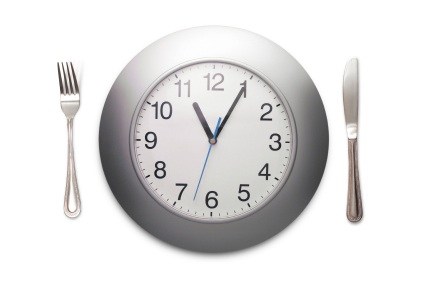
Author: Jim Stoppani
References:
http://www.muscleandfitness.com/
http://www.flexonline.com/
COPYRIGHT 2010 Weider Publications
COPYRIGHT 2010 Gale Group






